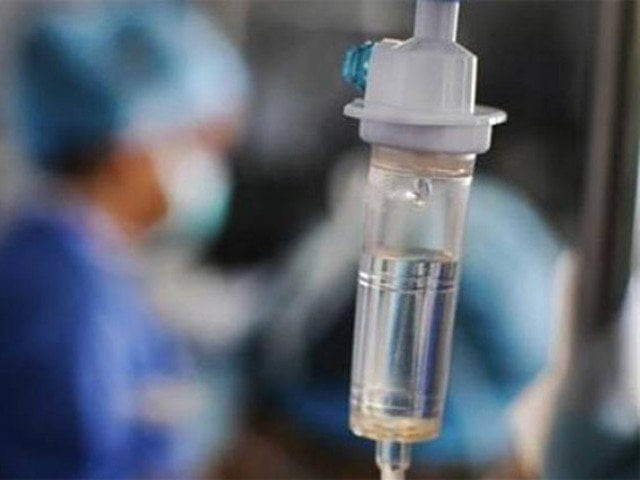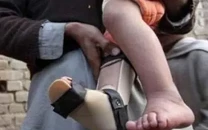Lacking a third of staff: Health minister proposes plan to improve care at HFH
Govt aims to introduce new management policy, enhance space by converting offices into wards

PHOTO: REUTERS
The plan was unveiled by Federal Health Minister Aamer Mehmood Kiani at the hospital after a meeting.
In the policy, Kiani unveiled that of the total 2,460 sanctioned posts in the hospital, 1,617 posts were filled while 845 were lying vacant. The biggest shortfall was of doctors where, of the 544 sanctioned posts, 339 were lying vacant. Thereafter, there were 177 vacant posts for miscellaneous gazette staff with only 43 of the 220 sanctioned posts filled.
There was also a shortfall of lower staff between basic pay scale (BPS) grade one through 16 with 254 posts lying vacant.
The only area where there were no staff shortages was in the nursing department where all the posts for head nurses (432) and charge nurses (432) filled.
Other aspects of the plan involved include enhancing monitoring of all work, including cleanliness and procurement in the hospital, by the AMS administration or the focal person for the hospital. Moreover, the medical superintendent of the hospital will do further monitoring while the vice chancellor of the Rawalpindi Medical University (RMU) will be responsible for overall supervision and monitoring.
Further, he said that having made four trips to the hospital in the past week, he was personally monitoring developments in the hospital.
To manage resources and the sheer number of people in the hospital, a new attendant policy was created whereby only one attendant will be allowed per patient. Further, visiting hours will be strictly implemented and they will be restricted to their designated waiting areas.
For more efficient management of beds, it will be handled through the AMS in the day and DMS in the night.
Moreover, offices will be turned into places for patient care.
In the pediatric department, the bed strength will be enhanced by 100 beds while the infectious diseases department will be converted into a new peads department while it will also get 50 new incubators and 10 baby warmers.
Similarly, the bed strength of the gynaecology department will be enhanced by another 100 beds. Kiani explained that this expansion was undertaken after PM Imran during his visit saw two women being accommodated on a single bed.
Furthermore, the hospital will see major renovation and upgrading work.
Addressing the media, Kiani stated that as many as 3 million patients visit HFH every year which puts an incredible strain on the existing staff. To improve services, he said that they will be hiring 180 additional cleaning staff while other vacant posts at the hospital will be filled soon for which the summary has been sent to the Punjab government.
Talking about the shelter being built in the hospital, the federal health minister said that it will be ready soon, adding that they will build similar shelters in other hospitals as well. Moreover, the parking area of the hospital will be extended as well.
Reiterating that health sector was the top priority for their government, Kiani said that they will launch the health insurance programme next month by distributing some 2 million health insurance cards (HIC) to the poor and needy.
The federal health minister said that the healthcare system of Pakistan was beset with numerous problems, mainly because of the apathy of past governments towards the health sector, evident from how previous governments failed to develop a “National Health Policy”.
To a question, Kiani said that they were working on ensuring that medicines are available. Commenting on the recent hike in prices of medicines, he said that medicines are mostly imported and hence their prices are directly linked with the exchange rate. Hence rates of these medicines had been revised to make the pharmaceutical companies financially viable. When the exchange rate falls, the prices of these medicines will be reduced as well.
He further added that the pharmaceutical companies had demanded a 30 per cent increase in prices, but the government persuaded them to limit the increase between nine per cent and 15 per cent.
Published in The Express Tribune, January 14th, 2019.



















COMMENTS
Comments are moderated and generally will be posted if they are on-topic and not abusive.
For more information, please see our Comments FAQ